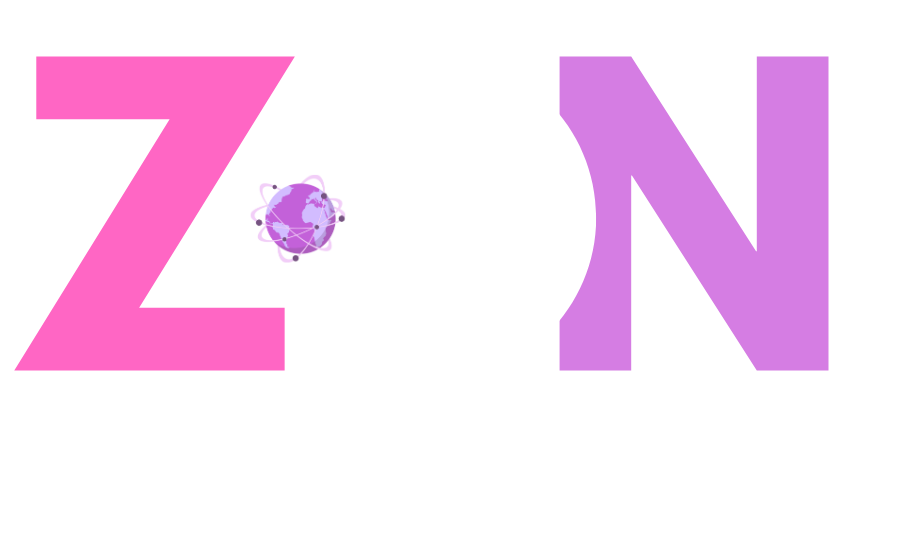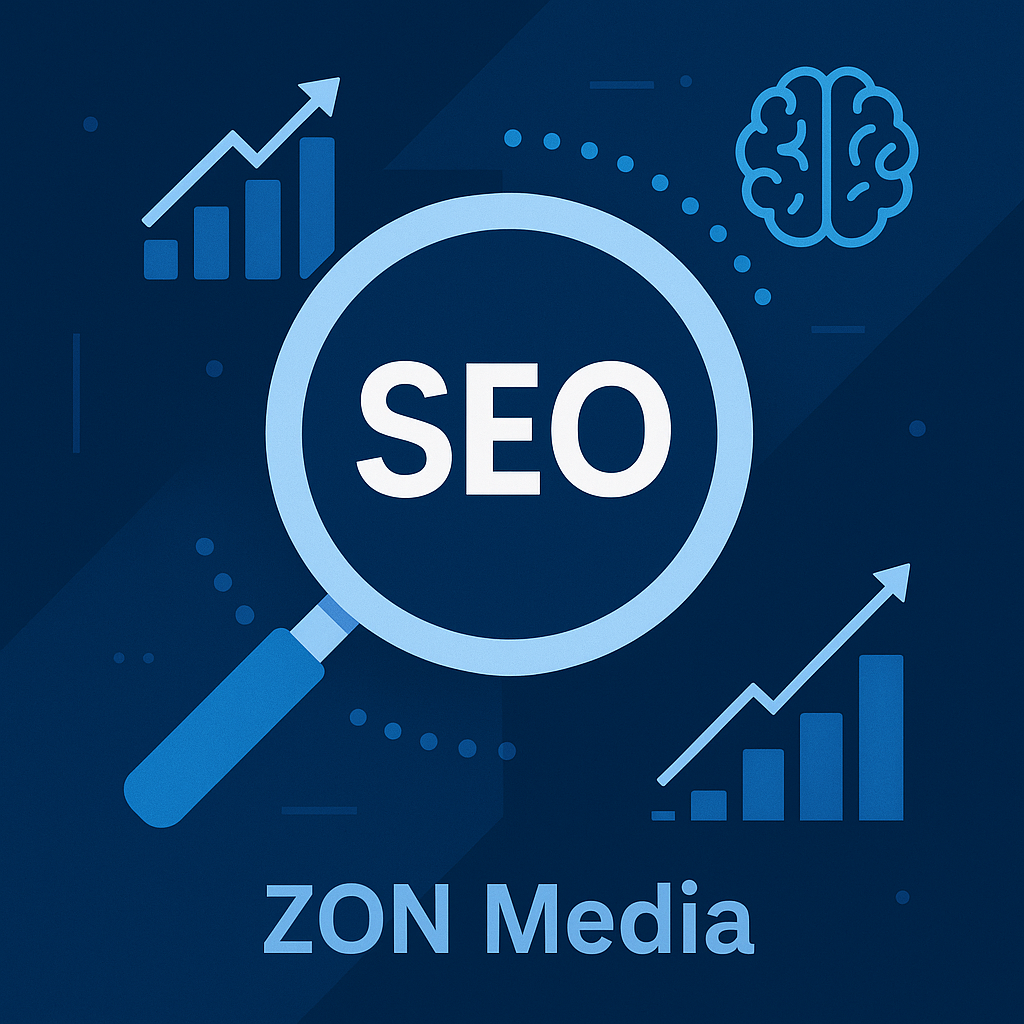By ZON Media and Marketing Agency
Introduction
As a leading digital marketing agency in the UAE, we’ve seen the region’s online landscape change dramatically. High smartphone penetration and a multicultural population make Dubai one of the world’s most exciting markets. In 2025, that dynamism is accelerating. Artificial intelligence (AI) is moving from buzzword to business necessity, voice assistants have become part of everyday life, and search spans multiple platforms. At the same time, Google’s E‑E‑A‑T guidelines emphasise that content must demonstrate Experience, Expertise, Authoritativeness and Trustworthiness to rank well.
This article explores key trends shaping digital marketing in Dubai for 2025. Whether you run a small business or a large enterprise, these insights will help you craft strategies that rank organically, resonate with audiences and deliver measurable results.
1. AI‑Driven Marketing and Predictive Analytics
AI and machine learning underpin many of the marketing tools we use daily. In 2025 they become indispensable:
- Predictive analytics: Sophisticated algorithms analyse search patterns, browsing behaviour and purchase history to anticipate what customers will do next. A hospitality group might identify when expatriates plan staycations and serve them tailored offers.
- Ad optimisation: AI‑driven bidding strategies adjust your spend in real time based on performance signals. You allocate more budget to campaigns with high click‑through rates and lower your cost per acquisition.
- Personalised experiences: Chatbots and recommendation engines deliver customised experiences in both Arabic and English. Retailers use past purchases to recommend complementary items, while service providers tailor FAQs based on a visitor’s browsing history.
Implementing AI requires high‑quality data. Invest in robust customer relationship management (CRM) systems and protect customer privacy; transparent data practices build trust.
2. Search Everywhere: Optimising Across Platforms
While Google remains dominant, search now happens across social media, video platforms, maps and app stores. To maximise discoverability:
- Optimise video and social search: YouTube Shorts, Instagram Reels and TikTok are search engines in their own right. Use keyword‑rich titles, captions and alt text in both languages. Include high‑intent phrases like “digital marketing agency Dubai” and “SEO services UAE”.
- Focus on local SEO: Keep your Google Business Profile updated with accurate contact details, categories such as “marketing agency” and “advertising consultant”, and regular posts. Encourage customers to leave reviews and respond promptly to them.
- Plan for voice: Voice queries tend to be longer and more conversational. Optimise content for full questions (“What is the best SEO agency near me?”) and structure articles with clear headings and concise answers.
Being visible across platforms requires research into long‑tail keywords and Arabic equivalents. Tools like Keyword Planner and Semrush help identify search volume and competition.
3. Voice Search & Conversational Queries
More than a billion voice searches are made each month, and Dubai households are embracing smart speakers and in‑car assistants. Voice search affects SEO in several ways:
queries are longer and more natural. Optimise for full questions and include synonyms and variations.
- Featured snippets: Voice assistants often read out featured snippets. Structure content with clear headers, concise answers and bullet lists to increase your chances of capturing these coveted positions. Use schema markup such as FAQPage to help search engines understand your information.
- Local intent: Voice queries often include “near me” or specific neighbourhoods (e.g., “marketing agency near Dubai Marina”). Make sure your site includes updated address details and references to local landmarks.
A mobile‑friendly, fast‑loading website is crucial, as many voice searches happen on mobile devices. Use Google’s Core Web Vitals as benchmarks.
4. Visual Search, AR and Phygital Experiences
Visual search is processing billions of queries each month and is becoming mainstream. Users snap photos to find similar products or information. Brands in Dubai are adopting these tools to enhance shopping experiences:
- Image optimisation: Use descriptive filenames, alt text with relevant keywords and structured data so search engines can interpret your visuals.
- Augmented reality (AR): Retailers can provide AR try‑ons for cosmetics or furniture, allowing users to visualise products in their homes. These experiences increase engagement and reduce returns.
- Blended online/offline (“phygital”) journeys: QR codes on packaging can lead to online tutorials, while in‑store tablets display extended catalogues. Ensuring a seamless transition between physical and digital keeps customers engaged.
5. Hyper‑Personalisation & Data Privacy
Consumers expect tailored experiences: research shows 73 % demand personalisation. In a multicultural market like Dubai this requires nuance:
- Micro‑segmentation: Segment your audience based on behaviours and interests rather than demographics alone. For example, create segments like “retailers seeking social commerce” and “start‑ups needing PPC support”, then tailor messaging accordingly.
- Dynamic content and automation: Serve different headlines, offers or product recommendations based on a user’s past actions. Email nurture sequences can adapt language—sending Arabic content to subscribers who engage with Arabic articles.
- First‑party data: With restrictions on third‑party cookies, focus on collecting data directly through subscriptions, loyalty programmes and gated content. Be transparent about your data practices and comply with regional laws.
Personalisation boosts engagement but must be balanced with privacy. Transparency about how you collect and use data builds trust and aligns with Google’s emphasis on E‑E‑A‑T.
6. Social Commerce & Platform Convergence
Social commerce—shopping directly through social platforms—is projected to exceed US$1 trillion within a few years. In the UAE it’s fuelled by high social media usage and an appetite for e‑commerce:
- In‑app shopping: Instagram and TikTok Shops let users browse and buy without leaving the platform. Set up storefronts, tag products in posts and highlight items that appeal to local audiences. Use live commerce to demonstrate products and answer questions in real time.
- Seamless checkout: Offer multiple payment methods, including cash on delivery and local digital wallets. Integrate your social storefronts with inventory management to avoid overselling.
- Customer service: Respond quickly to questions in comments and direct messages. Chatbots can handle common queries, but human agents should address complex issues, switching between Arabic and English as needed.
Social commerce should link seamlessly with your website and CRM to provide consistent pricing and promotions across channels.
7. Multilingual & Localised SEO
Dubai’s population speaks multiple languages. English and Arabic dominate but Hindi, Urdu and Russian are common. A multilingual SEO strategy expands reach:
- Dual‑language content: Produce high‑quality content in both English and Arabic. When translating keywords, consider colloquial terms as well as formal translations. For instance, “digital marketing agency” translates directly to “وكالة التسويق الرقمي”, yet many users search for “شركة تسويق رقمي”.
- Hreflang tags & local backlinks: Use
hreflangannotations so search engines serve the correct language version. Build backlinks from regional news sites, trade associations and reputable blogs to signal authority and relevance. - Geo‑targeted pages: Create landing pages tailored to key areas (e.g., Dubai Marina, Abu Dhabi, Sharjah). Include local keywords, testimonials and contact details to improve local rankings.
8. Building E‑E‑A‑T: Authority, Experience & Trustworthiness
Google’s E‑E‑A‑T guidelines emphasise content quality. To meet these standards:
- Author bios & case studies: Include author profiles with credentials and industry experience. Share case studies detailing challenges, strategies and results (e.g., “Increased organic traffic by 120 % in six months”).
- Citations & external links: Back up claims with reputable sources and link to authoritative sites. Citing data shows research and transparency.
- User‑generated content: Encourage reviews and testimonials from satisfied clients. Showcase user photos or videos to build credibility.
- Secure and transparent site: Use HTTPS, display trust badges and make privacy policies easy to find. Clearly list contact details, including a physical address and phone number.
Demonstrating expertise and trustworthiness not only improves rankings but also fosters long‑term customer relationships.
9. Ethical & Inclusive Marketing
Dubai’s market is diverse. Ethical marketing means representing that diversity respectfully and transparently:
- Inclusive language and imagery: Feature people of different ages, ethnicities and abilities. Avoid stereotypes and respect cultural attire and norms.
- Accessibility: Ensure your website accommodates people with disabilities. Provide alt text, captions for videos and sufficient colour contrast.
- Responsible data use: Avoid manipulative “dark patterns”. Be clear about cookies and give users control over their data preferences.
- Social and environmental impact: Highlight sustainability efforts and community initiatives. UAE consumers increasingly favour brands that contribute to social causes.
Conclusion: Preparing for 2025 and Beyond
Dubai’s digital marketing landscape is rapidly evolving. AI integration, search across platforms, voice and visual discovery, phygital experiences, hyper‑personalisation, multilingual SEO and ethical marketing are shaping success in 2025.
To thrive, businesses should:
- Invest in data and AI: Adopt tools that provide actionable insights and automate routine tasks.
- Optimise user experience: Focus on speed, accessibility and mobile‑friendliness. Create conversational, culturally relevant content.
- Localise strategies: Produce bilingual content, incorporate local keywords and collaborate with regional partners.
- Build trust through E‑E‑A‑T: Demonstrate expertise with bios, case studies and transparent policies.
- Embrace ethical marketing: Represent your diverse audience and respect privacy and social values.
At ZON Media and Marketing Agency, we specialise in guiding businesses through these trends. If you’re ready to elevate your digital presence in 2025 and beyond, contact us today. Together, we’ll help your brand thrive in the UAE’s vibrant digital marketplace.

